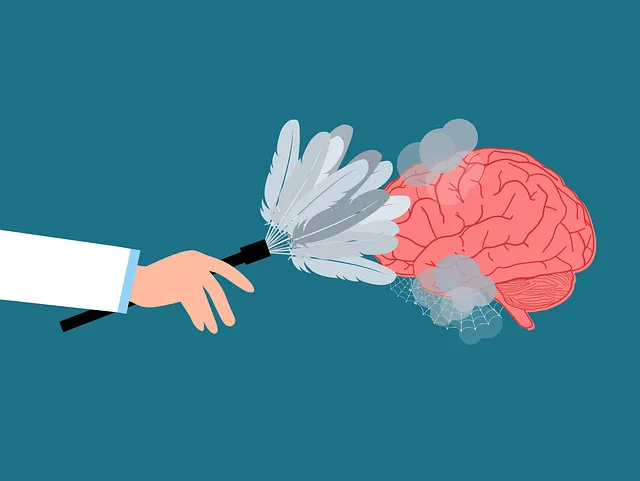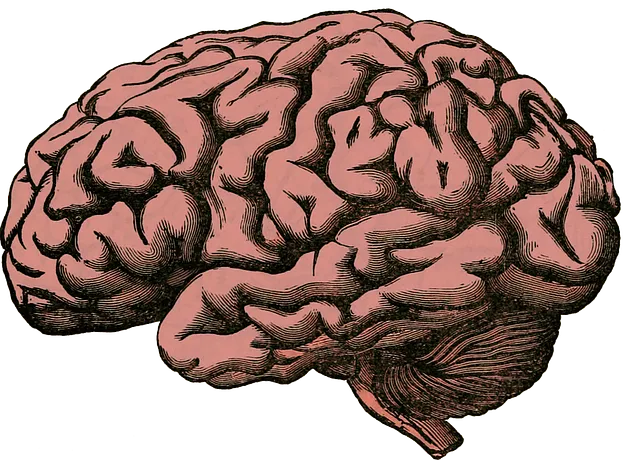The Kaiser Permanente mental health access center Broomfield employs a multifaceted evaluation strategy using quantitative (Perceived Stress Scale, surveys) and qualitative (structured clinical interviews, narrative assessments) methods to assess program effectiveness. This approach captures both broad trends and individual experiences, informing data-driven improvements tailored to the evolving mental wellness needs of the community.
Evaluating mental wellness programs is paramount for ensuring their effectiveness. This comprehensive guide explores evaluation methods employed by the Kaiser Permanente Mental Health Access Center in Broomfield, delving into assessment tools, participation metrics, client satisfaction surveys, and continuous quality improvement strategies. By understanding these approaches, organizations can optimize their mental health services, fostering better outcomes and enhanced client experiences, specifically tailored to the unique needs of the Kaiser Permanente mental health access center Broomfield community.
- Assessment Tools for Mental Wellness Programs at Kaiser Permanente Mental Health Access Center Broomfield
- – Overview of assessment methods used by the center
- – Types of tools (e.g., surveys, clinical interviews) and their purposes
- – Benefits and limitations of common assessment techniques
Assessment Tools for Mental Wellness Programs at Kaiser Permanente Mental Health Access Center Broomfield

The Kaiser Permanente Mental Health Access Center Broomfield employs a multifaceted approach to evaluate its mental wellness programs, utilizing a range of assessment tools tailored to different interventions. For instance, stress reduction methods are assessed using standardized questionnaires like the Perceived Stress Scale (PSS), which measures individuals’ subjective stress levels over the past month. This helps in gauging the effectiveness of relaxation techniques and other stress management strategies offered within the center.
Trauma support services, a critical component of their program, are evaluated through structured clinical interviews and narrative assessments that capture participants’ trauma histories and symptom patterns. Additionally, post-workshop evaluations for Stress Management Workshops Organization (SMWO) sessions use participant feedback forms to assess knowledge gain, skill acquisition, and overall satisfaction with the workshops. This data is invaluable for refining and improving these programs to better meet the evolving needs of individuals seeking mental wellness support at Kaiser Permanente Mental Health Access Center Broomfield.
– Overview of assessment methods used by the center

The Kaiser Permanente mental health access center Broomfield employs a comprehensive evaluation framework to assess and improve its programs’ effectiveness. Their assessment methods include quantitative surveys, qualitative interviews, and focused group discussions, offering a multi-faceted approach to understanding client needs and program impact. These techniques not only gauge satisfaction but also delve into specific areas of mental wellness, such as self-care routine development for better mental health and depression prevention. By collecting both numerical data and nuanced insights, the center can identify gaps and tailor interventions to reduce the stigma associated with mental illness.
The evaluation process is designed to capture the diverse experiences of individuals engaging with the center’s services. This includes assessing the reach and accessibility of programs, as well as their ability to foster positive changes in participants’ lives. Regularly reviewing these assessments enables the Kaiser Permanente Broomfield team to make data-driven decisions, continuously enhancing their offerings to better serve the mental health needs of their community.
– Types of tools (e.g., surveys, clinical interviews) and their purposes

Evaluating mental wellness programs is a multifaceted process that employs various tools tailored to specific needs and goals. Surveys are one such common method, offering a quantitative perspective by gathering data from participants about their experiences, satisfaction levels, and perceived improvements in mental health symptoms. These anonymous assessments provide insights into program effectiveness and help identify areas for enhancement, especially when compared across different Kaiser Permanente mental health access centers, like the one in Broomfield.
Clinical interviews, on the other hand, offer a qualitative approach, allowing mental health professionals to delve deeper into individuals’ experiences, emotional states, and challenges. This method is invaluable for understanding clients’ perspectives, building empathy, and identifying unmet needs. Techniques such as Conflict Resolution and Empathy Building Strategies can be incorporated into these interviews to foster open communication and strengthen therapeutic alliances. Additionally, Cultural Sensitivity in Mental Healthcare Practice plays a crucial role in ensuring that program evaluations are inclusive and respectful of diverse backgrounds, further enriching the data collected.
– Benefits and limitations of common assessment techniques

The evaluation of mental wellness programs is a multifaceted process that employs various assessment techniques to gauge their effectiveness. One widely used method is structured clinical interviews, which allow professionals to delve into individuals’ symptoms, experiences, and functioning in depth. This approach offers benefits such as comprehensive understanding and standardized measurement, enabling direct comparisons across different populations and interventions. However, it may not capture the nuances of participants’ subjective experiences, relying heavily on the interviewer’s skills and interpretation.
Another common technique involves self-report questionnaires, which are valuable tools for assessing Mental Health Awareness and tracking progress over time. These questionnaires can gauge symptoms of conditions like anxiety and depression, as well as promote Self-Care Practices. Despite their accessibility, they may underrepresent certain experiences or be influenced by social desirability bias. The Kaiser Permanente mental health access center in Broomfield leverages these methods while recognizing their limitations, incorporating qualitative data collection to enrich quantitative findings and provide a more holistic evaluation of its programs’ impact on the community’s mental wellness.
The evaluation methods employed by the Kaiser Permanente Mental Health Access Center Broomfield are instrumental in gauging the effectiveness of their mental wellness programs. By utilizing a combination of surveys, clinical interviews, and other tools, the center can assess not only individual patient outcomes but also broader program impacts. This multifaceted approach enables continuous improvement, ensuring that services remain aligned with the evolving needs of the community. As the Kaiser Permanente Mental Health Access Center Broomfield continues to refine its evaluation techniques, its commitment to mental wellness advocacy is evident, making it a model for effective healthcare delivery.






